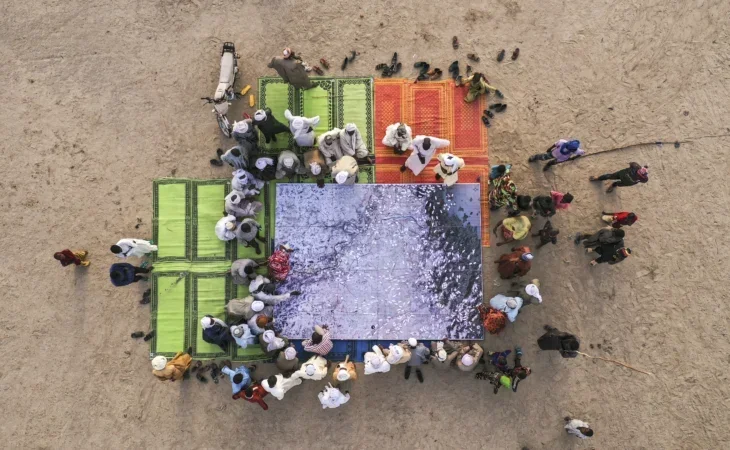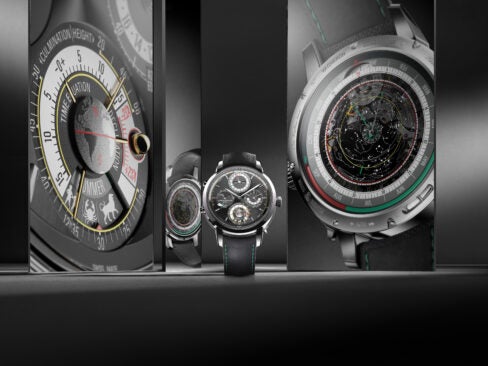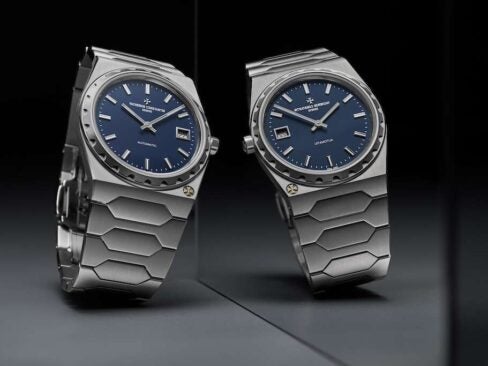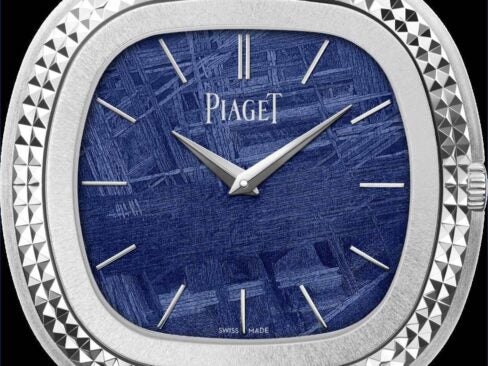Born into a nomadic lifestyle among the Mbororo people in the country of Chad in North-Central Africa, Hindou Oumarou Ibrahim is working with local tribe leaders to map the country’s resources, help mitigate conflict and demonstrate how to live in harmony with nature. Here, she shares her story with Elite Traveler’s Roberta Naas and explains how Rolex’s Awards for Enterprise helps her achieve her goals.
For the past 45-plus years, Rolex has supported courageous individuals through its Rolex Awards for Enterprise, helping the recipients with their extraordinary (albeit challenging) projects that are designed to advance education, culture, health, and awareness and understanding of environmental issues. Last year, the top Swiss watch brand recognized five laureates, including Hindou Oumarou brahim, a young Chad-born woman whose work to map the natural resources of Chad, one of the world’s most climate-challenged lake regions, is helping to make a huge difference in human culture and conflict.
Living in a first-world country, we take many things for granted, even the fact that we have digital maps of the world right on our phones. Mapping is a powerful tool that helps structure, track and visualize nature’s resources, water sources, and man-made towns, hospitals and schools. In the poor, landlocked country of Chad, where the nomadic people live and move, and where Lake Chad — which has shrunk by 90% of its original size since the 1960s due to climate change and spontaneous irrigation — is the main water source for more than 30 million people, but it had not been fully mapped before now.
By working with the more than 200 different ethnic groups of Chad to map their resources, study the corridors along which they move their families and animal flocks, and identify needs for improvement, Ibrahim hopes to help resolve conflict over the ecosystem and reduce climate-induced strife. In fact, by relying on the traditional knowledge of the indigenous people and bringing it to the forefront with these 2D and 3D maps, she hopes to find collaborative solutions that will focus the world’s eyes on Chad and its people’s ability to live in harmony with nature.
[See also: Upcycling Time: The Most Sustainable Watch Brands]
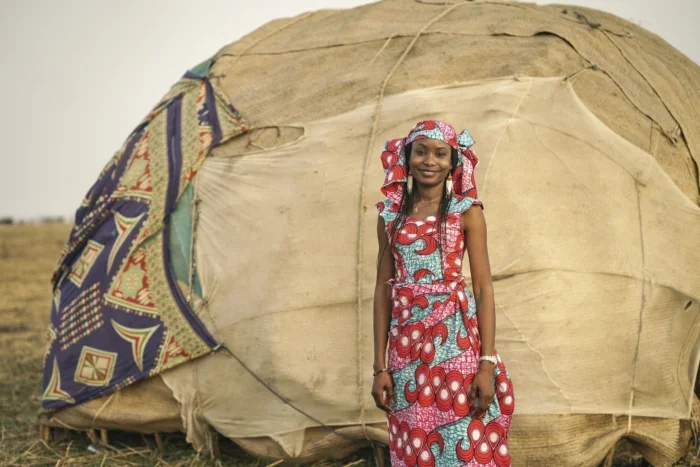
“Many people in my community didn’t get to go to school, but I did,” said Ibrahim in a private interview. “When I wanted to help my people, I realized that I can’t talk about the community without talking about the environment. Human rights are about the rights of the environment, too, and if we want to see our lives improved, we must improve the rights of our environment.”
According to Ibrahim, combining two cultures — studied or learned knowledge with traditional knowledge — can transform human life and the environment. “When you come from communities where there is no school and people cannot read and write, you have to find a different way, an innovative way, to get them involved and put them together. My people have a lot of traditional knowledge about nature because we live in nature, and we know how to live in harmony with nature. We have cattle that we move from one place to another with us, so we care about the plants and resources along the way. But climate change is a reality that we experience every day in different ways.”
[See also: The Most Expensive Watches Ever Sold at Auction]
Ibrahim says that many people don’t know where Chad is or the drastic climate changes it has endured. However, when she meets people who know of Chad, they predominantly know it as a poor country with civil war, conflict and other negative issues. Many have heard of the huge shrinking of the lake, its diminishing ability to supply water to the millions who rely on it, and the loss of fish and life that grows in it.
“When the world expects a 1.5-degree climate change, we in Chad expect a 3% change because of where we are. When you have nomadic people, you have corridors of movement for those people and their cattle across the lands, and they are traveling more and further now to reach water sources because of the climate change,” says Ibrahim, explaining how she starts her work with huge satellite maps that the local tribespeople then add to with water sources, villages, trees, plant life and more. Once the mapping is done, there will be a convention to explain how to use the maps and the traditional knowledge found in them to manage the environment.
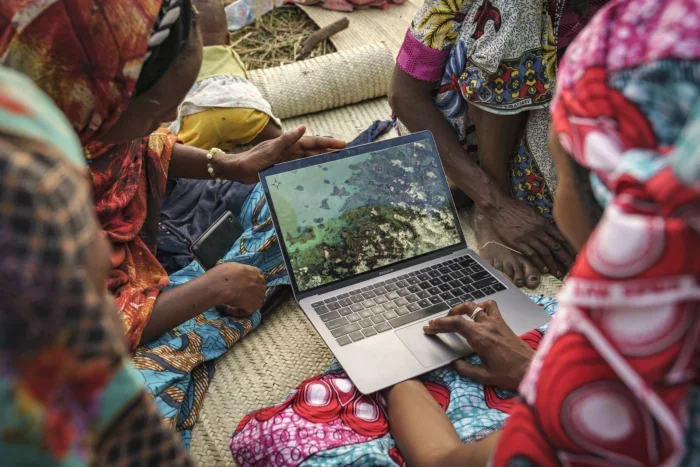
“Even though we have a fragile ecosystem, Chad is the solution for the world. People here are living in an organic way. We are still using our traditional knowledge to protect nature, to live in harmony with our surroundings; and people can learn from us. We are not living in the past, we represent the future of the world,” she says with passion, noting that the world’s resources are suffering from overdevelopment, excess and waste.
“We don’t have waste because we do not waste anything. We take what we need from nature and restore it or give it back to nature,” she explained, noting that when she travels she is surprised by the packaged foods in supermarkets that all have expiration dates. “All of that is coming from nature. But here, we use everything we take. We eat the food and then dry out what is left to eat it the next day, or we give it to neighbors or feed our own animals.”
[See also: The Best New Releases from Watches and Wonders 2022]
She goes on to explain that it is the same way with all things they use, not just food. “There is nothing to pollute our environment. We use it and reuse it. Like my clothing, I wear it and I give it to my cousins and my sisters, and then they use it, and when it becomes old they use it to carry babies, and they use and use again for other things until it becomes zero and becomes part of nature and life again.”
While it may be too late to restore Lake Chad, it is not too late to save the remaining water and ecosystem. “We are protecting a huge percent of the world’s biodiversity. We can’t just talk about the planet; we need to act,” declares Ibrahim.
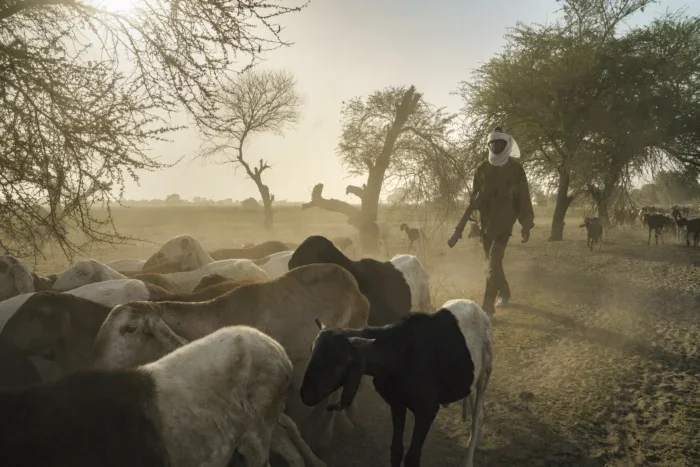
Winning the Rolex Awards for Enterprise grant for her cultural heritage project has given Ibrahim the financial capacity to gain access to the technology needed for the maps and the mapping process, which has been several years in the making. While she has already worked with hundreds of tribe leaders and mapped two places thus far, she is currently working with more communities on mapping the south side of Chad next. “The Rolex Awards also have helped me with raising awareness that traditional knowledge can help be part of the solution, and can lead to more action on the ground as we work together to restore the ecosystem in Chad for the long term.”
Part of Rolex’s Perpetual Planet program, the Awards for Enterprise have helped many individuals like Ibrahim to create and implement solutions to major challenges. In fact, since 1976, the brand has given support to 155 winners who have been catalysts in transforming communities, the environment and lives.





